Transient Response
20% Load – 20ms
| Advanced Transient Response 20% - 50 Hz - No Caps | ||||
| Voltage | Before | After | Change | Pass/Fail |
| 12V | 12.076V | 12.016V | 0.49% | Pass |
| 5V | 5.038V | 4.970V | 1.34% | Pass |
| 3.3V | 3.296V | 3.175V | 3.66% | Pass |
| 5VSB | 5.057V | 5.017V | 0.80% | Pass |
50% Load -20ms
| Advanced Transient Response 50% - 50 Hz - No Caps | ||||
| Voltage | Before | After | Change | Pass/Fail |
| 12V | 12.068V | 12.009V | 0.48% | Pass |
| 5V | 5.031V | 4.967V | 1.28% | Pass |
| 3.3V | 3.284V | 3.158V | 3.82% | Pass |
| 5VSB | 5.043V | 4.996V | 0.93% | Pass |
The transient response is very good at 12V and 5V but not that good at 3.3V, where the voltage level drops below 3.2V in both tests.
Transient Response ATX v3.1 Tests
The PSU passes all ATX v3.1 transient response tests, but the 3.3V rail drops low in the 200% load test. It only passes because we took into account our equipment tolerances and error margin.
The 12V rail has controlled voltage drops, but other high-end units perform better in this crucial section.
Pages:
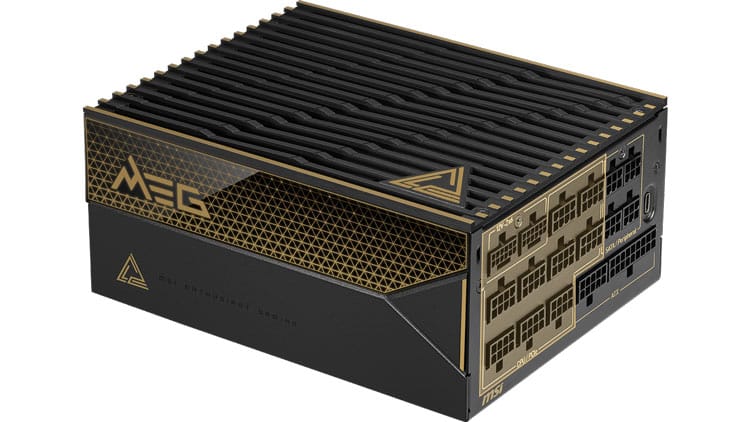
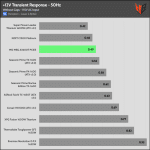
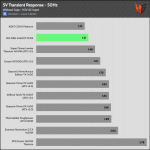
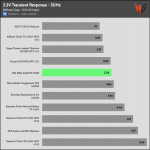
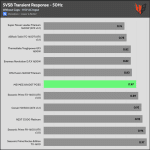
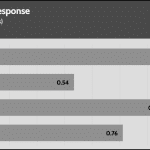
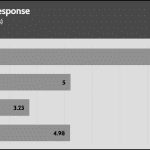
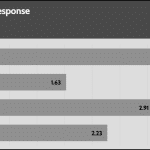
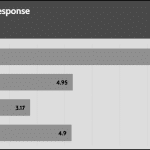
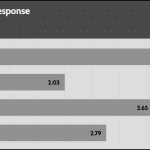
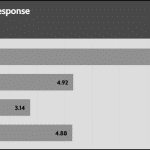
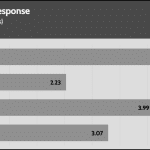
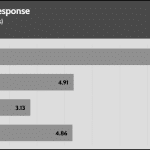
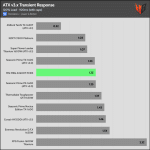
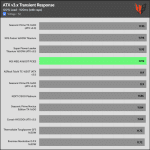
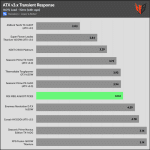
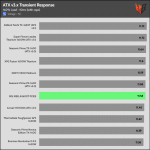
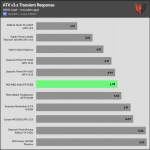
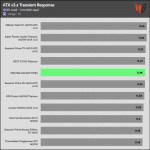
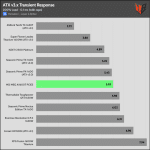
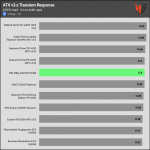


Why is it certified titanium if the 80+ requirements require 50% efficiency to be at least 96% at 230V? This unit only has 94+.
It is Cybenetics certified under >1450 different load combinations taking the average efficiency. 80 P only checks 4-5 different load levels.
be quiet! Dark Power PRO 13 1600W Compare to MSI – MEG Ai1600T
I’m building a new system and these are my 2 PSU that I like, I would like to find a review comparing these 2 power supply’s The only big difference that I see is the price .
I would go for the MSI unit
Thank you! But why there is no FSP Hydro Ti Pro in the comparison sheets anymore?
I didn’t use it in this review because it is a 1000W PSU. I used higher capacity PSUs for comparison.
Thanks for the great review of this! Would love to see the Corsair AX1600i included in the comparisons since I feel like that tends to be the benchmark for performance.
Yes, it is still the best performing PSU.
This power supply is fully customizable, including the fan curve, but the article doesn’t mention a word about it… If the fan doesn’t turn on until 810W, it would take 100 years for the lubricant in the dual-bearing to dry out. Dumb review—doesn’t cover the key features.
Seriously!!! I evaluated everything, and you came here to write about the fan curve, a software thing. It is easy to see who is the dump here.
Nobody is saying that you’re stupid—you did a great job and deserve respect. It’s just that this is an incomplete review with some not entirely accurate conclusions.
For example, the statement “Very loose fan speed profile that makes me worry” doesn’t make sense because everything can be adjusted in the software! Or “No fan failure protection”, when you actually have monitoring and temperature protection.
It’s funny that someone even reacted to my post at all! ))))
Thankfully you didn’t, I am relieved now. You called my review dump but I am not stupid ok. Thank you for clarifying that! Although I feel a bit stupid just by replying to your comment, but this is another story.
The PSU should have a proper fan speed profile from DEFAULT! Most users won’t even bother connecting it to their systems. This means that the fan speed profile should be OK WITHOUT a user fixing it!
Do you even know what fan failure protection means? If you don’t, please google it first and then write your thing.
The problem with internet is that anyone can express his/her opinion by insulting people like me who work their asses to deliver such content. If you dislike my conclusions and disrespect my work, feel free to become a PSU reviewer and send me the links to your reviews to comment!
By the way, the one who reacted to your post is the idiot who wrote this review.
Please Aris, let the noobs live their life. No need to waste your time for those idiots.
I bought one and after checking it out I ordered two more to replace in the other computers I use. It’s one of those products that you have a great pleasure of buying and using.
This PSU is mediocre at best. And you can realise it just by looking at its weight. Good PSUs are heavy. High-end 1600w PSU can’t weight 2.8 kg. Look at Seasonic TX 1600, 5.8 kg!
Side question why would you want a 160pw psu for a 5090?
1600W? For 2x 5090s
So let me get this straight…in a PSU segmentation that offers competitive products from $300 & up, this $700 MSI PSU offers:
-A cheap dual ball bearing fan that will get louder over time as the lube dries up
-Hot temps starting at 950W DC power & up
-No fan protection for the cheapo dual ball fan
-Unimpressive voltage regulation for CPU core, RAM, & SATA drives
-Higher voltage ripple for GPUs & CPUs versus competitive options
-Higher voltage ripple for CPU core, RAM, & SATA drives at 80% & 100% versus competitive options
-Weaker overall 115V performance than NZXT’s PSU that costs half as much
Yup, this PSU is poised for greatness…
Thanks for the review. I see in the review about the Enermax Revolution D.F.X. 1650W. Where is its review?
I don’t even remember if I reviewed this one 🙂 You can find its full data on Cybenetics in any case.
When I saw the fan curve of this PSU from the Cybenetics report, I wasn’t expecting such a poor cooling solution for this PSU! With far better built (and cheaper!) noise-optimized ATX 3.1 PSUs in the market like the Seasonic Prime Noctua TX-1600 or the Cooler Master Silent X Platinum 1300, I really don’t see the point in throwing $699 USD for a PSU that doesn’t even come with fan failure protection.
Such a dissapointing PSU from MSI…
NZXT with price around $369 (it’s around $329 in Indonesia) outclassed MSI MEG A1600T with its price around $700
Really, MSI?